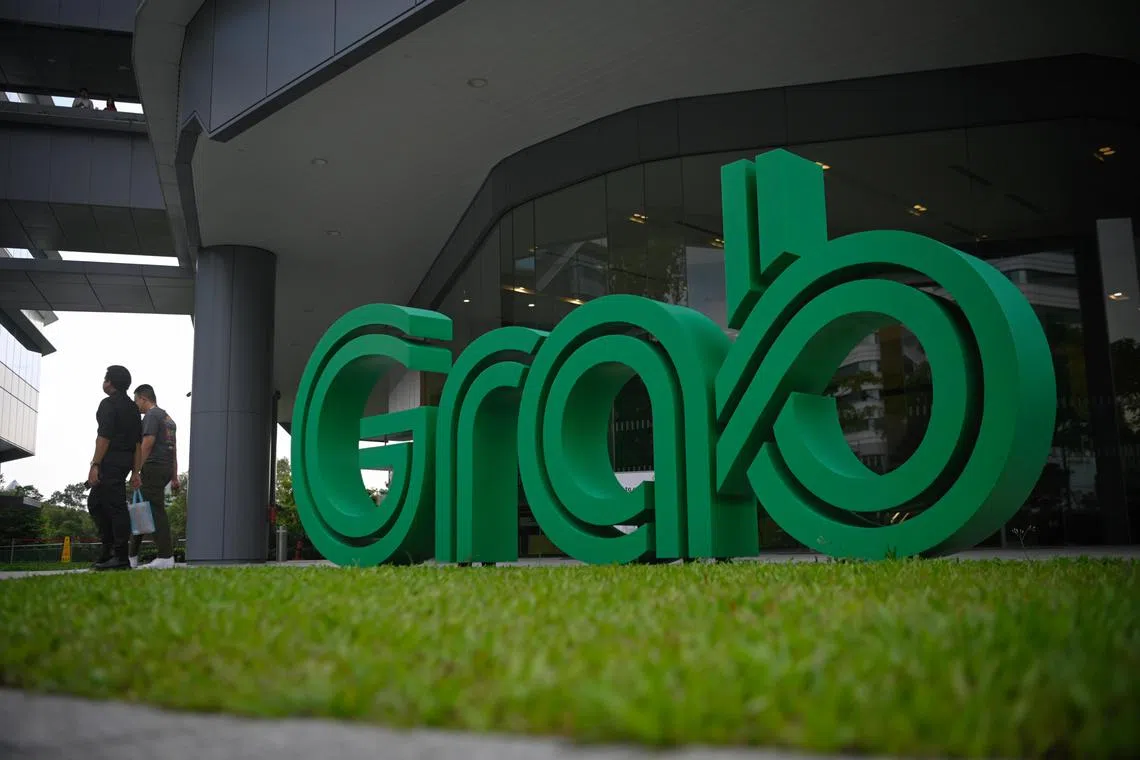Grab’s soft delivery sales overshadow improving bottom line
Sign up now: Get ST's newsletters delivered to your inbox

Total platform sales at Grab’s delivery business – its biggest – fell 9 per cent in the March quarter.
ST PHOTO: MARK CHEONG
SINGAPORE – Grab Holdings said on Thursday that an early Ramadan weighed on sales at its delivery business, taking the shine off an otherwise positive quarter and sending the South-east Asian company’s shares down by 12 per cent when they commenced trading.
Total platform sales at Grab’s delivery business – its biggest – fell 9 per cent in the March quarter due to the early start of the Ramadan fasting period and the first Chinese New Year without mobility restrictions since the pandemic.
But the company’s finance chief, Mr Peter Oey, struck a positive tone for the unit in an interview, saying that he expected “the second half of the year to be stronger for the delivery business”.
The South-east Asian super-app operator has embarked on a cost-cutting drive, with measures including a slashing of its cloud bill and a hiring freeze for some roles.
It has also lowered expenditure on consumer and worker incentives.
The lower incentives helped the delivery business triple its revenue to US$275 million (S$371 million), which beat financial market analysis firm Visible Alpha’s consensus estimates.
Total revenue more than doubled to US$525 million, also above expectations of US$504.3 million.
Revenue at the rideshare business – Grab’s second-largest – rose 72 per cent to US$194 million in the March quarter, but it missed the US$195.2 million consensus estimate, according to Visible Alpha.
Grab posted a smaller adjusted operating loss of US$66 million in the period, compared with losses of US$287 million a year ago.
It also narrowed its forecast range for annual adjusted operating losses to US$195 million to US$235 million, from a range of US$275 million to US$325 million before.
Chief executive Anthony Tan said: “With five sequential quarters of adjusted earnings before interest, taxes, depreciation and amortisation (Ebitda) improvements, we remain on track on our path to profitability, and to achieve group adjusted Ebitda breakeven in the fourth quarter of this year.”
Adjusted Ebitda is a financial metric used to analyse a company’s operating performance.
“Going into the second half, we’ll aim to sustain the momentum. We will continue to reduce our cost to serve and leverage our scale to improve affordability,” added Mr Tan.
Meanwhile, Grab’s digital banks in Malaysia and Indonesia are on track for launch later in 2023.
Grab is expecting its digital banks, including GXS Bank in Singapore, to break even by the end of 2026. REUTERS, THE BUSINESS TIMES


